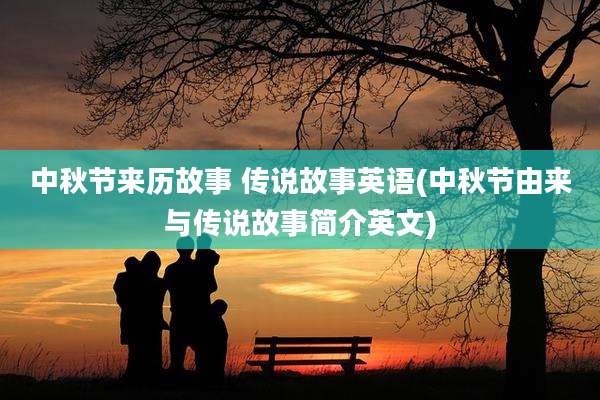Mid-Autumn Festival Origin and Legend

The Mid-Autumn Festival, also known as the Moon Festival, is a traditional Chinese holiday celebrated on the 15th day of the eighth lunar month. It's a time for family reunions, moon-gazing, and enjoying mooncakes.
### Origin
There are several legends surrounding the origin of the Mid-Autumn Festival, but one of the most widely told is the story of Chang'e (嫦娥). According to the legend, ancient Chinese astronomers observed a mysterious celestial body that was actually the moon. They called it "Jade Rabbit in the Moon," and believed that eating the moon's flesh could confer immortality.
In the 3rd century BC, an Emperor named Tang Huang was so enchanted by the moon's beauty that he decided to visit it himself. He asked the Goddess of the Moon, Chang'e, to guide him. However, she fell in love with the tranquility of the moon and decided to stay. When the Emperor returned, he realized Chang'e had consumed the moon's flesh and become immortal, leaving him in sorrow.
To celebrate the reunion of the Emperor and Chang'e, the people of the kingdom began to hold moon-viewing ceremonies and offer mooncakes, which symbolize the full moon and the story of Chang'e.
### Legend of the Mooncake
Another well-known legend revolves around the mooncake itself. It's said that during the 14th century, the Mongolian regime imposed strict rules on Chinese people. To signal the resistance, the Hongmen (rebels) wrote secret messages on mooncakes, which were then distributed during the Mid-Autumn Festival. As a result, the mooncake became a symbol of unity and resistance against tyranny.
### Modern Celebrations
Today, the Mid-Autumn Festival is a time for family reunions and enjoying the moon's beauty. People gather to gaze at the full moon, eat mooncakes, and tell stories. The festival is also marked by lantern displays, dragon dances, and other traditional performances.
The Mid-Autumn Festival is not only a celebration of the moon's beauty but also a symbol of family, unity, and the fight against oppression. It remains one of the most cherished and widely celebrated festivals in China and among Chinese communities worldwide.
「点击下面查看原网页 领取您的八字精批报告☟☟☟☟☟☟」
